
A freelancer in Beijing. 著有《麻辣人世间》、《爱这个世界,虽然它不够完美》。
Burn after reading: This is the real Taiwan
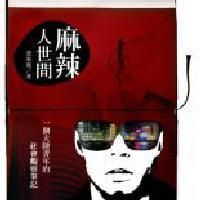
I have been thinking, how many people will sit down and read an article of 10,000 words now?
How many chances are there for a writer to stop all work and spend a week writing a long essay?
I did spend over a week writing this post.
But, as you know, no traditional media will publish.
It doesn't matter, I didn't write to earn money for publishing. Big deal, just make it into my essay collection someday.
Thank you for reading, the ultimate meaning of writing is to share, whether it is sad or not.
It should really be burned after reading it, and then hit the road to explore this beautiful and colorful world.
is for memory.
Zhang Jiayu
20170508 Beijing Shijingshan Songfengzhai
TAIWAN
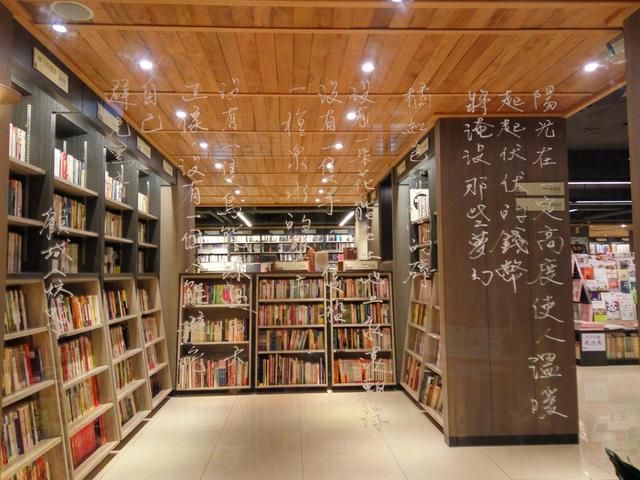
"Why are there no Kenting streetcars?"
On March 24, 2017, it was more than 6:00 pm, and it had been more than half an hour since I got off the bus in Hengchun Daguangli, and there was still no car shadow. I just got off the street car at 5:30 pm to taste the Axing sashimi recommended by my friend. The driver kindly stopped at the closest point to let me off, and told me that there would be the next bus at 5:45. The site is going back.
So, I ordered sashimi, dipped in mustard and soy sauce, and you can enjoy 15 pieces of fresh ingredients for NT$100. However, after a quick decision, I waited at the station until my heart froze (it was almost dusk), and I didn't wait for the street car.
The door of a house on the side of the road is open, and there is a Buddha in the hall. The owner, a seemingly seventy-year-old old lady, saw me waiting for the bus, and kindly took out a stool for me to sit on. Later, when I asked others why there were no streetcars coming to Kenting, they pointed to the side and told me, "He'll be here soon. He'll take you there."
This "he", about fifty years old, in uniform, started the locomotive, handed me a helmet, and started scrambling. This is my only experience with a scooter in Taiwan. The speed is just like the passion of Taiwanese motorcycle teenagers, which makes my heart shudder when I sit in the narrow back seat.
This middle-aged man, I thought he was a police officer at the police station. Twenty minutes later, the locomotive arrived at the gate of a large hotel on Kenting Street. He said it was time for a shift change, and he was a security guard.
I handed him a business card, thanked him for his help, and hoped to contact me when I got to Beijing.
Kind, courteous, thrifty
This security guard brother (uncle) is just a microcosm of Taiwanese. When you walk on the ground of Taiwan, you will meet countless such people. "The most beautiful scenery in Taiwan is people" is of course not false.
I still remember one evening in March this year, due to heavy rain, a teacher and I took a taxi ("Xiao Huang") from the MRT mansion to return to Zhengzhou University. The master said that there is an optional highway, and asked how much it is, and he replied that there is not much, and the toll is only charged when the highway is more than 20 kilometers in Taiwan. He reported a figure at the time, which was NT$250.
Unexpectedly, he talked about his life in the car: Growing up in Mucha for decades, driving a taxi and earning a lot of money when he was young. She will be unhappy and have to follow her. Although he is an aboriginal, he actually drove the wrong car twice during the chat, and the exit that was supposed to go out did not come out. He drove all the way to the new store, and had to turn back again. Finally, 500 yuan is displayed on the dial after arriving at the station. However, he waved his hand and said, "Okay, 250 yuan."
The same is a taxi, there is a story. On March 23, I took the train to Kaohsiung Station. After leaving the station, ask in advance how to take the bus in Hengchun. The driver of "Xiao Huang" said that he could pick him up at the hotel for NT$360, about two and a half hours, and gave me a business card. The other party also sincerely told that you can also take the bus, which is cheaper, but it will take about three hours.
The next morning, I went to the train station again and wanted to take a bus. The person next to me said that there happened to be "Xiao Huang" going to Kenting, which cost NT$360. There were several guests who were having breakfast and would be leaving soon. After I agreed, I got in the car and waited, and ten minutes later, a young man and a woman got in the car and set off. However, the two of them were sitting in Donggang, and there was still an hour's drive from Donggang to Hengchun, and I was the only passenger left.
In the car, I asked this single man who was two years younger than me: "Now there are fewer tourists, is the income much lower?" Unexpectedly, his answer was very calm, "Today I will take the three of you for a trip. Enough gas money. However, at 4 o'clock in the afternoon, I will go to Kenting to pick up four people back to Kaohsiung, and I have more than 1,000 Taiwan dollars." In his opinion, he is a licensed individual renter. "The pressure is not as great as that of a corporate company. It is good to have a job every day, and it doesn't matter how much you earn." Communication along the way is very pleasant, you don't hear complaints, and of course you don't hear cursing mantras.
Although Taiwanese people complain about low income (the working class has not raised their salary for 20 years; the average monthly salary of college graduates is NT$22K, which is only RMB 5,100 at the exchange rate of 4.3), overwork, and high housing prices, but generally speaking The mind is peaceful and calm.
This reminds me of my first visit to Taiwan in May 2007, when Cloud Gate Dance Theatre invited our mainland reporters to visit. What impressed me the most were the two rehearsal venues:
The first is the Yunmen Wuli rehearsal field near Danshui. It is built with iron sheets in the countryside. Except for performances, the dancers travel from the city to the place to practice, and the important training for the dancers is to write with calligraphy. (Note: The venue was burnt down a year later. Since the rehearsal venue was an illegal building, Lin Huaimin solemnly apologized to the whole society on behalf of Yunmen.);
The second is the rehearsal field of Youren Shengu on Laoquan Mountain in Mucha. The car can only drive up to the middle of the mountain, and then walk on the mountain road. A flat land among the trees is the venue. If the members of the group did not perform, they had to come here for training. On the mountain, you can see the 101 building, which is as high as a grain of rice.
Although it has been ten years, I will never forget the calmness and persistence of those dancers and drummers. This recollection is intertwined with some experiences a few years later:
In 2010, I emailed my doctoral dissertation to Showway Information, a publishing company on demand (POD). Taiwan is free to publish, and the book number is not a scarce resource, so the other party thinks that the content of the paper is acceptable and publishes it for free. In addition to 50 sample books, they can also pay royalties when they sell one or two hundred copies.
When the manuscript was proofreading several times, I suddenly remembered that in 2007, I bought a copy of "Fog Locking China" written by He Qinglian at the Jinshitang Bookstore in Taipei, and on the girdle there were the names of professors who studied journalism and communication in several universities in Taiwan. , or ask them to write a sequence recommendation. Although I didn't know them, I ventured to send the full text of the manuscript and the request to their email (I found out through online inquiry), and finally Professor Feng Jiansan from the School of Communication of Chengchi University replied and wrote a recommendation preface.
In 2016, when I applied for the "Cross-strait Scholars Research Program" of the Center for International Relations of Chengchi University, I recklessly wrote to Mr. Feng again. He also agreed to write a letter of recommendation for me, and it was quite long. In November of that year, my research plan came to fruition. On the third floor of the National Chengchi University News Center, I was able to meet for the first time in Mr. Feng’s office and drink tea made by him. He also warmly invited to participate in their weekly campus hill climbing activities on Fridays.
If you have the heart, go to Mr. Feng Jiansan's personal website (website: www3.nccu.edu.tw Prof. Feng Jiansan), what you should find most is his diligence: he keeps writing, including monographs, translations, long papers, and newspaper articles. , various and constantly updated. However, as soon as we met, we learned that although he responded quickly to emails, he who was born in 1959 did not have a mobile phone at all! This does sound like a fantasy.
Unlike Mr. Feng, Professor Chen Desheng of the Center for International Relations of Chengchi University is more busy. Because he runs the China Regional Economic Development and Governance Forum, serves in the Common Market Foundation, and organizes academic summer camps for college students from both sides of the Taiwan Strait, and classes at the center are still scheduled, so the schedule is always full. But every scholar, no matter if it is one or several, will make dinner and dinner, and often arrange for the reception and farewell. During the period, they will cook together at the student's residence.
In November 2016, I had already started a one-month residency research program at Chengchi University (accommodation provided by the National Customs Center for free), but I flew back to Beijing after only ten days for professional title evaluation. At that time, I tentatively applied to Mr. Chen to renew the research plan in the coming year, and he agreed without any hesitation.
In fact, being enthusiastic and caring for others is just an important sign of society in developed countries (regions). But, because Taiwan and mainland China share the same language and cultural environment, it surprises us.
I still remember that in November 2016, I lived in the dormitory for scholars near Chengchi University and passed a store called "Gulezhai". I thought it was selling musical instruments, so I knocked on the door and went in. As a result, it is not a music, calligraphy teaching place. The owner is a Pentecostal old lady surnamed Zhang. She chatted with me enthusiastically, saying that she was one of the foreigners sent by the government in 1987. She studied Western opera in Rome, Italy. After returning to Taiwan, she taught at a university and settled here more than ten years ago.
The storefront is rented, and there are various objects in it. The main products are pianos, books, CDs and calligraphy and painting works. She said that in 2003, she went to the mainland, rented a car and traveled everywhere, and went to the Forest of Steles in Xi'an, where she bought a lot of rubbings, including Buddha statues and calligraphy, which are now framed and hung on her facade.
I'm just one of the passers-by, A, B, C, and D, and I have no intention of paying to learn from her. However, they exchanged business cards. I passed by for a few days after that, but the door never opened, so I called to ask for clarification, and replied that I had injured my foot a few days ago, and maybe I could climb the mountain with Cheng Cheng University the next day.
The next day, after climbing a mountain, it started to rain lightly, and we walked to the adjacent Mucha Market together. She bought some vegetables. I thought she took it home and made it herself, but unexpectedly, she was cooking in the store, and said firmly, "I'll make it and eat together."
After eating this inexplicable meal, I was thinking: perhaps, the ideal city is an undefended city. On the street, you can easily get into the mind of a stranger.
Human-friendly system design
A Taipei city promotional video says:
"You said it was difficult here, but I gradually felt fairness and justice."
It seems that "kindness, respectfulness, thrift and yield", as a sign of a good citizen, has nothing to do with fairness and justice. But in fact, without such a social environment, it is difficult to produce good citizens.
In March this year, we set off from Taipei, stayed in Chiayi for one night, and then visited Alishan. I booked a hotel over the phone in advance, but didn't pay the deposit. After arriving in Chiayi, we looked at several hotels and felt that they were too old and the prices were not low. Later, when I went to the hotel I booked, I was not satisfied and looked for another place.
During this process, the reception staff of these hotels were all friendly and did not look unhappy. It is worth mentioning that when I left the station at Chiayi Railway Station, I took two discount advertisements for one hotel, each worth NT$399. The last one we went to was this Orange Hotel which opened in 2014. The front desk was very enthusiastic, saying that the price was NT$798 a night, and it was NT$399 after using the coupon.
When checking out, tell the front desk if you can give some coupons so that friends can stay in this store in the future. The other party was very polite and immediately wrapped five coupons with a face value of NT$2,500 each in a letter and sent them to me. In fact, he didn't do that at all. However, honesty and friendliness is what the service should be.
It seems that Long Yingtai once said a sentence, to the effect that it depends on the degree of civilization of a society and its attitude towards the disadvantaged groups.
Indeed, you can easily find designs that take care of disadvantaged groups in Taiwan. For example, the fraternity seat in the bus and MRT. As I saw when I took a bus in Berlin in 2014, in Taipei, when people in wheelchairs get on and off the bus, the driver will pull out the iron plate to build the bridge and push the passengers to get on and off the bus.
In Chengchi University, the dormitories, office buildings and libraries have barrier-free access roads. In Kenting's Maobitou Park, a long barrier-free passage is specially built. And Nanyuan, Xinguang Road, Muzha, where I live, even the elevator has barrier-free design: there are two sets of buttons, one is lower; and there are Braille on the buttons!
If you pay attention a little, you will find that in the front right of the bus, there will be a platform of several square meters for passengers to put their luggage. There are also charging sockets, which are convenient for those mobile phone users. There is also a much-needed design: on the bus, there will always be a whistle or two beside the pull ring, which is designed for those who are sexually harassed.
Think about it, weakness and strength are relative terms. An emperor who was in power for a while, commanded the world, and was majestic, but once he was terminally ill, he was extremely pitiful. In the confined space of public transport, women who are loved by thousands of people are often vulnerable. Those whistles, as a shocking system design, may have never been used, but they have become their tangible talismans.
In March 2017, Qiong Yao, a 79-year-old Taiwanese writer, posted a long article on her Facebook account titled "An Open Letter to My Son and Daughter-in-Law Reserving My Good Farewell". ://weibo.com/ttarticle/p/show?id=2309404084799240285451):
1. No matter what serious illness I have, the most important thing is to let me die quickly without major surgery!
2. Can't put me in an "intensive care unit".
3. Under no circumstances should a "nasogastric tube" be inserted! I don't want to live like that!
4. Under any circumstances, I cannot insert various life-supporting tubes (such as urinary tubes, breathing tubes, etc.).
5. The last "first aid measures", gas cutting, electric shock, Yeke film... these, all do not.
The five points are just to achieve her ideal: "helping me die without pain is more important than trying to make me live with pain".
Qiong Yao's move was actually inspired by others. Because she saw the "Book Your Own Good Farewell" published in "Today Weekly", and Shen Fuxiong (doctor, politician), Ye Jinchuan (former Taipei Deputy Mayor, "Director of Health") have made relevant confessions. .
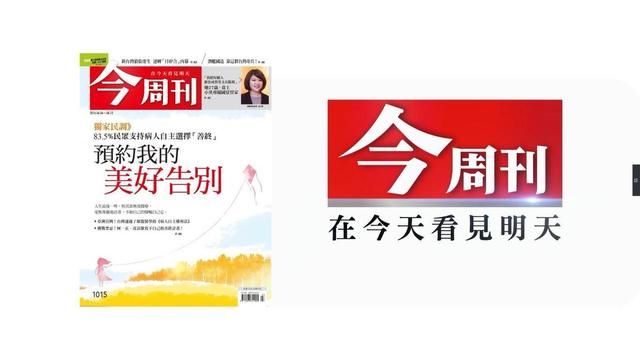
An important trigger for these moves is that Taiwan's "Patient Autonomy Law" will come into effect on January 6, 2019. Professor Zhang Liqing of Kaohsiung University once wrote that "it is the first law in Asia with the patient's medical autonomy rights as its core." The law has two main points. One is that the object of the doctor's duty to inform is to return to the patient itself, not the family member; the other is that "specific patients" have the right to refuse medical treatment, avoid embarrassing torture, make an appointment for a hospice, and seek a good death. The question of life and death has always been a matter of great importance to the Chinese, especially the Han. For most Han people, they do not believe in the afterlife, but only want to grasp the present, so they believe in "it is better to die than to live". For nearly a hundred years, there have been many people living in China, and "life is like a mustard" has become the norm, but there is still an obsession with life.
Therefore, being alive is the first priority, so who cares about the quality? It's just that when the economy develops to a certain extent and the society is progressing, essayists like Bo Yang will stand up and be inspired by others to start drinking "The Ugly Chinese" (1985), shouting "We must live a good life" Dignity (2003). An interesting episode is that in 1999, Bo Yang opened a column in response to the appointment of Hong Kong's "Ming Pao Monthly"; in July 2002, the magazine published a collection of column articles, titled "Chinese people live well without dignity". In December, Taiwan Yuanliu Publishing Company renamed the publication "We Want to Live With Dignity".
The word "want" is nothing but a vision, indicating that there is still a big gap between reality and it. This requires the efforts of individuals and groups, and more importantly, institutional design. Just as some developed countries have approved euthanasia, backward countries and regions should think more about how to adapt to the progress of the times.
Sometimes when I chat with Taiwanese people, I will deliberately say, "Tell me how good you are, but if you go to the "Apple Daily", you fight and kill every day, and there are all kinds of bad people." The other party often smiles lightly, "We don't even look at it." This actually involves cognitive frameworks and news operations. We can't point to the whole, and we can't generalize, but on the other hand, we must also pay attention to the media's ability to reflect reality and shape people's thoughts.
In Taiwan, if you turn on the TV from mainland China, you will be surprised to find that there are so many channels that promote religious teachings: there are Dharma masters teaching Buddhism, and priests teaching the Bible; there are Dharma King Dharma King giving lectures, and young nuns teaching English… …
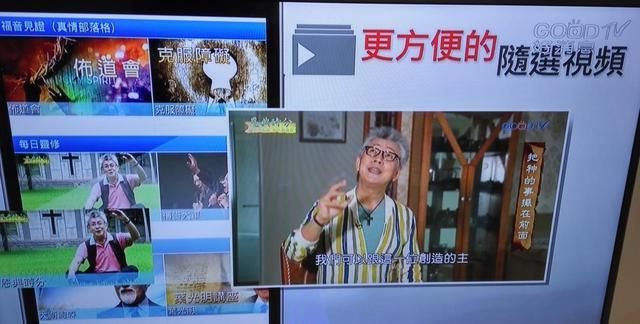
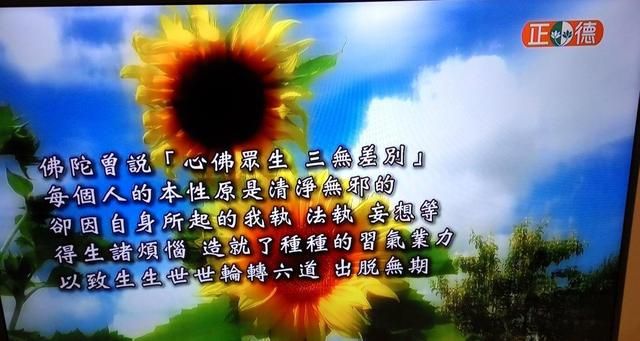
On the streets of various cities in Taiwan, you can easily find that there are many verses or good suggestions on the doors of many small shops and roadside telephone poles. They are actually mobile textbooks.
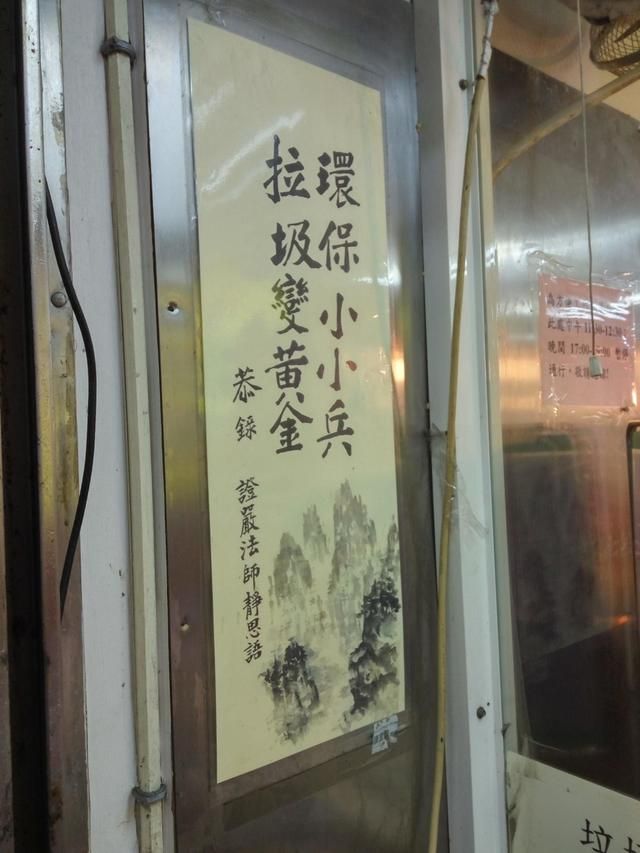
Creativity is storytelling
After seeing some scenery in Taiwan, many mainlanders will sigh with emotion: "The scenery in Taiwan is just like this, it is far worse than the mainland."
This conclusion is extremely correct: the total area of Taiwan is about 36,000 square kilometers, which is equivalent to 1/3 of Zhejiang, 1/5 of Shandong, and 1/45 of Xinjiang... However, some Taiwanese maps print the island of Taiwan oversized. It's easy to get misunderstood.
Of course, a large site may not necessarily have a good scenery, but if the site is small, it is difficult to present a variety of scenery. On the contrary, if there is a good scenery, people may not know it. Generally, if the scenery is promoted well, it will still become a famous scenery.
Back to the topic, although Taiwan is small, how many people in the mainland, whether they are in their 70s or 80s, or in their 10s and 20s, or even children, do not know about the Penghu Bay in Alishan Sun Moon Lake? How many people have not heard of Luo Dayou, Fei Yuqing, Fei Xiang, Jay Chou, Teresa Teng, Cai Qin, Qiongyao, etc.?
Of course, scenery is dead, people are alive, and living people can bring scenery to life. Therefore, when we walk on Zhongxiao East Road in Taipei, we will immediately think of "Walking on Zhongxiao East Road, dodging in the crowd" sung by Tong Ange; on the Yangming Mountain (formerly known as Caoshan) trail, you will always think of Wang Yangming's mind; In Hengchun, you will recall various scenes in "Cape No. 7"; in Jiufen, Chen Qizhen's "Café in Jiufen" will recall in your ears: "The scenery here is like you, unpredictable. On such an afternoon, I sit on the side of the road in Jiufen..."
Cultural creation (abbreviation for cultural creativity) is actually a method of storytelling. And it penetrates every capillary in Taiwan.
In March 2017, I visited Taiwan's "Presidential Palace" for free. The first thing that Mr. explained is the word "fu". Through the split-character method, "Guang" symbolizes the operation of the "Presidential Palace", and "Fu" means entrustment, that is, the people entrust their power to the "Presidential Palace". Its English exhibition name "Power
to the people” is a demonstration of the spirit of democracy.
If you go to "Shuowen Jiezi", the interpretation of the word "fu" is "document collection". The interpreter obviously understood the word anew. However, this self-justified dismantling does echo the new era and is also impressive.
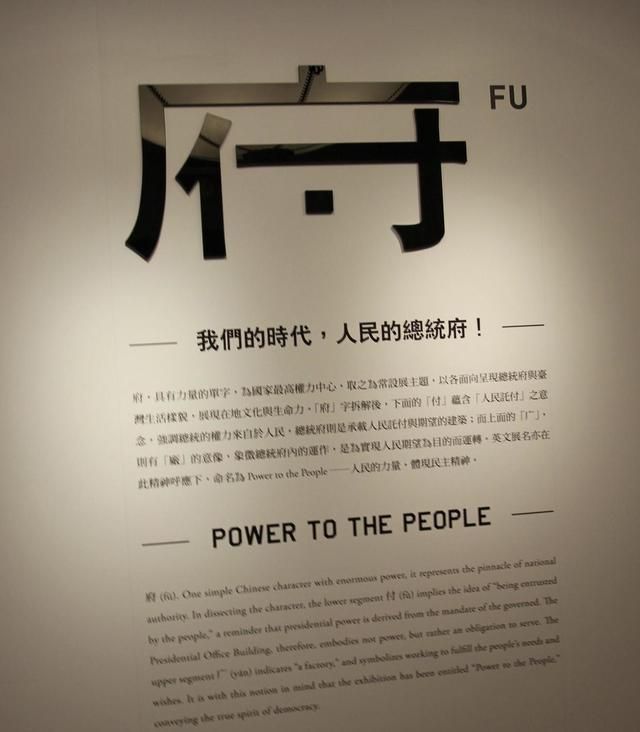
There are also many cartoons in the "Presidential Palace", and a number of cartoonists have been invited to draw the image of the government in their minds. In one of them, Tsai Ing-wen is in the office, and a cat she keeps has wide eyes. In this soft way, the warm side of the rulers is presented.
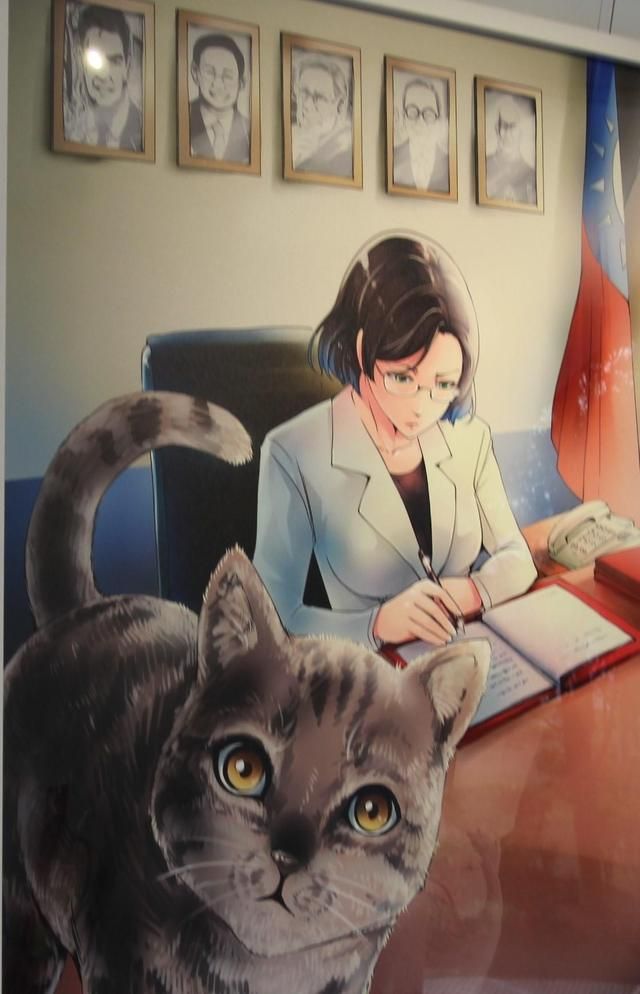
You can also buy Tsai Ing-wen, Chen Jianren's inauguration, and vice-presidential commemorative stamps issued in April 2016 at the post office in the "Presidential Palace", but they are comic editions. In the shops in the prefecture, you will find as if there is nothing that cannot be a commodity. What you think of becomes a commodity, and what you don't think of becomes a commodity. For example, the poem "Taiwan" written by Chen Xiuxi is printed on a small table mat.
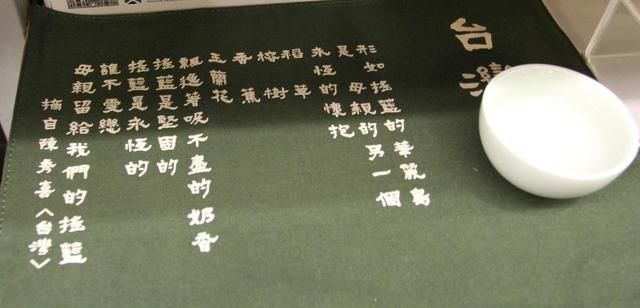
If you go to the National Palace Museum in Taipei, you will also be amazed that Taiwanese people's brains are not ordinary: Lang Shining's painting has become a mouse pad, jade cabbage has become an umbrella, and Dongpo meat-shaped stone has become a mobile phone chain. I know" (Kangxi's imperial pen) became paper tape.
Politicians can also be creative: Chiang Kai-shek and Soong Meiling have become dolls in the Shilin official residence, and they are still big bear dolls outside the store. Even steamed buns, there are Zhongzheng bags and Meiling bags.
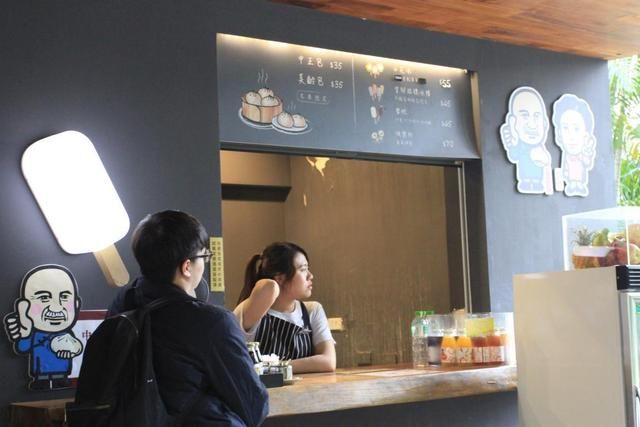
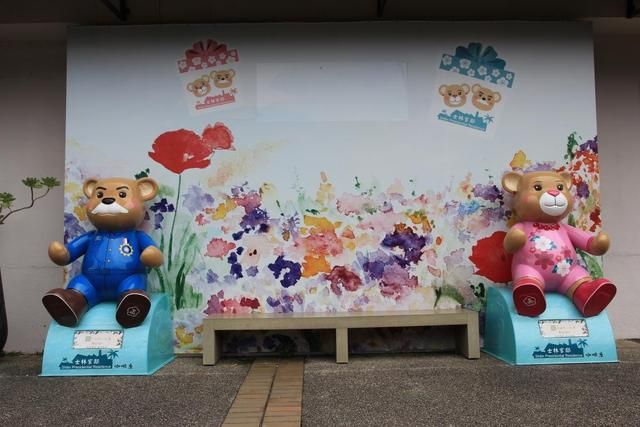
South to Kaohsiung, the charm of cultural and creative is everywhere:
MRT Beauty Island has a huge stained glass dome (4500 pieces of glass, with a total area of 660 square meters), known as the "Dome of Light", designed by Italian artists. The subway station was voted one of the 15 most beautiful subway stations in the world by an American travel website.
It doesn't count, a grand piano is placed under the dome of light, and anyone with a certificate (with a photo) can apply to play for one hour for free. There are rows of chairs next to it for passersby to listen. In fact, it is the cost of tens of thousands of RMB, which easily improves the taste of the city.
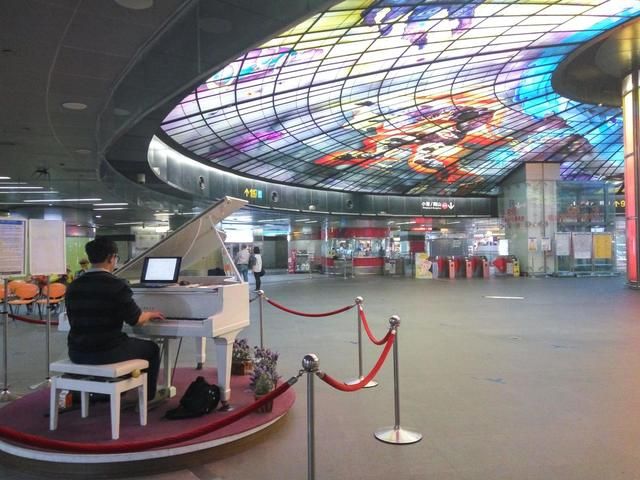
If you go to Kaohsiung Pier 2 Art Special Zone, you will feel that "the old appearance has changed into a new look": the original old port warehouse was transformed into a comprehensive art district after 2000. You can visit Eslite bookstores, watch sculptures, and watch movies in historic streets.
When I walked to the Banana Pier near Kaohsiung Port, I found the Banana Story Pavilion. Although it is only a few dozen square meters, the furnishings inside are very rich, including the literature on banana production and sales, the locomotive for transportation, the bedrooms of banana farmers, and the stocks issued by the cooperative. Statistics show that in the 1950s, Taiwan used to earn US$60 million in foreign exchange from exporting Japanese bananas every year, accounting for almost 1/3 of Taiwan's total foreign exchange.
After reading this, you can deeply understand why there are such lyrics in "Beautiful Island" sung by Hu Defu and Yang Zujun:
We have brave people here.
We have infinite life here
Buffalo Rice Banana Magnolia
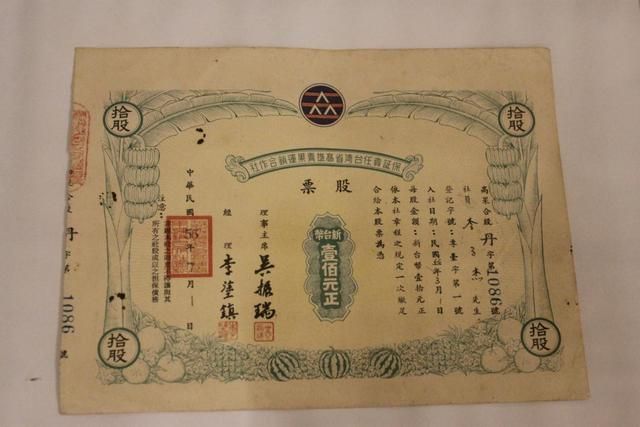
Of course, cultural creativity is not forced, if you want to have long-term vitality, you must have feelings. In Taiwan's "handmade" (handmade) trend, you will always find the uniqueness of some cultural and creative works, and you can also perceive their temperature.
I think of what I saw in Jiufen one day in November 2016. There is a pottery shop in the quiet part of the commercial street halfway up the mountain, and there are many fired animals for sale. The kittens are all different. I chatted with the female boss and said that her father used to be in this line of business, and there was a special factory making them, "I made these cats myself. I didn't study art before, I just did this business at home, Just help."
On the day I went, she was packing and delivering some pottery to Beijing. She told that some stores in mainland China have seen the products and are very interested, and want to buy in large quantities, but the production is limited and they cannot meet their requirements at all. In the era of profit-seeking industrialization, this is indeed very emotional.
multicultural mix
Of course, Taiwan's becoming what it is now is not a temporary result, but the interweaving and development of history and reality. In my opinion, it is a mixture of traditional Chinese culture, modern Japanese civilization and American-style democracy.
When I was in Jiufen, I met a Taiwanese tour guide. He told me, "Lao Jiang has made two major contributions to Taiwan, one is to bring traditional Chinese culture, and the other is to bring the Forbidden City."
The writer Jiang Nan also mentioned, "Mr. Jiang's two feet are on the road of revolution, but his understanding of revolution is vague. 'Revolution' is a new term for conquering the world and becoming emperor in a narrow sense. The other foot stopped in the feudal remnants of the alley, thinking that Confucianism and Mencius thought will always be the mainstream of Chinese cultural thought. Although, he himself has been to Japan and drank Oriental ink... He has also stopped in Ming and Qing Confucianism and old etiquette. In the realm of life, I can't rush out, and I never even try." (Jiangnan: Biography of Chiang Kai-shek, China Friendship Publishing Company, 1984 edition, P16)
I have been to Taiwan three times in total. The first time was in 2007, when there was an elementary school near the hotel where I lived. When I passed by, the gate was open, and the statue of Confucius stood high. And this is very rare in mainland China.
In November 2016, I went to Taiwan for the second time to study at National Chengchi University. Chiang Kai-shek was the first principal of this school, so the library was called Chung Cheng Library. There is a statue of him in the museum, as well as his long message to the graduates of the Political School (the predecessor of National Chengchi University); there is also a bronze statue of him on the middle of the mountain. But the most famous building of Zhengda is the Siwei Hall. Hanging in the hall is a wooden plaque with "Propriety, Righteousness and Honesty" written by Chiang Kai-shek.

However, Jiangnan was critical of Chiang Kai-shek's old-fashioned attitude: "Mr. Jiang was poisoned by old ideas, and he believed in the four-dimensional and eight-virtue superstition throughout his life as a magic symbol to transform China, and he was even driven out of the mainland. Calling for cultural renaissance, forcing high school students to read The Analects and Mencius, and stipulating that sacrifices to Confucius are required every year. Descendants of Confucius can sit at home playing mahjong and receive a high salary.” (Jiangnan: Biography of Chiang Kai-shek, China Friendship Publishing Company, 1984 edition, P17) This can certainly be used as a dimension of observation.
The imposition of self-love on others is reprehensible, but the results are not necessarily all bad. Writer Wang Shuo once mentioned, "The Taiwanese cultural people I have come into contact with are even a bit sloppy in their seriousness about Chinese culture, and that kind of honesty and sincerity is rare in the mainland. You can also play together while doing things.” (Wang Shuo: "Ignorance Fearless", Chunfeng Literature and Art Publishing House, 2000 edition, P6)
Wandering around Taiwan, you will most easily find temples and palaces. Not to mention the Longshan Temple in Taipei, the incense is always prosperous. Of course, Dharma Drum Mountain and Foguang Mountain are also famous at home and abroad.
What I pay particular attention to are those palaces embedded in the community. In the city, there are just too many. One evening in March 2017, while walking through the streets in Chiayi, I happened to have a big party at the Guangning Palace to celebrate the Christmas of the King of Sanshan (the King of Sanshan originated in eastern Guangdong, Guangdong, and originated in the Sui Dynasty.). There are about 20 or 30 tables in an alley. At one end of the alley, a modern electro-optical stage is also built, hosted by beautiful women, and there are lottery activities. The prizes are bicycles and so on. Local councillors gave speeches and lucky draws. I asked an elder sister who was dining, where did the money for this event come from? She replied, "We made it ourselves, NT$400 per person. Including food, drink and lottery."
One night later, I was near the Wukuicuo Station of the Kaohsiung MRT, and found that there was also a palace dedicated to the King of Sanshan, and a stage was set up next to it, and a Gezi opera was being performed. Because it was the last day, there were only about ten people in the audience, but the actors performed very seriously. I asked an old man who was watching a play, and he said that it was the Christmas of the King of Sanshan, and everyone paid for the play troupe. He said that in life, citizens often come to the palace to pay their respects when there are weddings and weddings. So you will also see that no matter which palace (Fengtian Palace, Tianhou Palace, etc.), there is always a lot of incense and tribute. Some dignitaries often also inscribe inscriptions. For example, Longshan Temple has a plaque inscribed with "Zehou Minfeng" inscribed by Lee Teng-hui; and Chen Shui-bian also wrote inscriptions for a palace near Chiayi Culture Road.
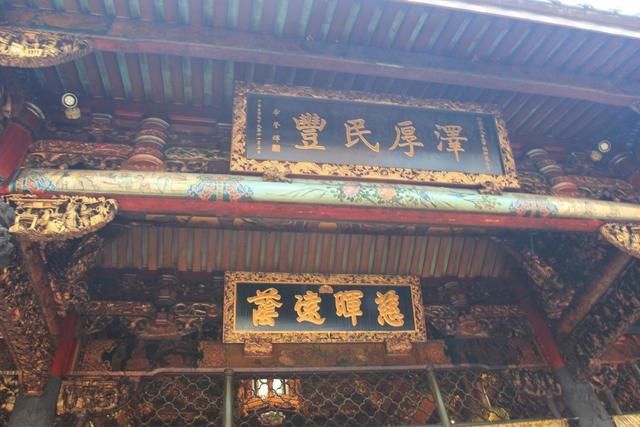
When I go to Taiwan, I really feel that there are many palaces and palaces (there are also large-scale palaces on Qijin Island in Kaohsiung). On the other hand, in mainland China, there are actually too few temples in areas where Han people live. Let's take Beijing as an example. A foreigner wrote in a book:
In 1911, the year the Qing emperor abdicated, there were more than a thousand temples (Buddhist temples, Taoist temples, Confucian temples, etc.) . There is a temple on almost every street. Today, despite some impressive reconstruction work by the authorities, there are only 20 functioning temples in Beijing, with a population of about 12 million. (Ian Johnson: "Wild Grass: The Slow Revolution of Lower China", translated by Wu Meizhen, Eight Banners Culture, 2012 edition, P117-119)
If you look into the reasons carefully, it is because Taiwan did not "break the four olds", did not have the Cultural Revolution, and more importantly, did not have "atheistic" education (Chiang Jieshi and Soong Meiling were Christians). Therefore, these places of Confucianism, Buddhism and Taoism have been preserved and become a part of people's lives. I even asked a young woman in Taiwan, "If you believe in Buddhism, and your boyfriend doesn't, will it work?" Her answer was, "The premise of our being together is that we have a common belief."
The Treaty of Shimonoseki was signed in 1895 and Taiwan became a Japanese colony until Japan surrendered in World War II in 1945. Fifty years of Japanese rule, according to a Taiwanese driver's interpretation, "At that time, Japan wanted to treat Taiwan as a permanent colony, so they did a lot of construction."
Therefore, when we visit Alishan, of course, we will scold the Japanese for building railways a hundred years ago and stealing red cypress trees (because they are not perishable, known as "sacred wood") to build their palaces and temples; in Jiufen, we will also feel pain They scolded Japan for stealing the gold mines in Taiwan. However, let's not forget that Taiwan's "Presidential Palace" was built during the Japanese occupation period, and many of the railways built by Japan can still be used. Elderly volunteers at the Taipei Rural Education Center in the Bopiliao Historic District will tell you that the first school in Taiwan was built by the Japanese. At present, because it is said that some scenes of Hayao Miyazaki's works are from Jiufen, there are many Japanese tourists in Jiufen, which has stimulated the tourism economy.
A Taiwanese said on Zhihu: Japan's influence on Taiwan has many aspects, including food, clothing, housing and transportation, including dealing with people and life. Relevant research shows that Japan's positive performance towards Taiwan includes: modernizing agriculture; requiring every child to have six years of basic education; setting up a health police to supervise the people on a full-time basis, paying attention to public health in daily life; promoting modern medical care System; the implementation of the rule of law (a Taiwan tour guide said that during the Japanese occupation period, households were not closed at night).
When you come to Taiwan, you will definitely feel the enthusiasm of the service. In 2007, when I went to Din Tai Fung to eat Xiao Long Bao, I was deeply impressed by the waiter who kept saying "I'm sorry, I'm sorry" for being slow to serve the meal. During the last two trips to Taiwan, I have eaten at countless restaurants, and cleanliness is a common feature of them.
Of course, what impressed me the most was the toilets in Taiwan, which changed the stereotype of "dirty, messy" Chinese living circles in people's minds. I often tell people that the floor of their toilet (the "powder room" for many) is good for sleeping. In addition, the standard toilets in Taiwan are hand sanitizer, toilet paper, and many of them have ventilation fans, which are basically comparable to the toilets in mainland airports, so going to the toilet in Taiwan is less worrying and more comfortable.
Garbage is almost invisible on the streets of Taiwan. Like Japan, there are basically no trash cans on the streets of Taiwan. Generally, garbage cans are only available in supermarkets and do not hold most things. Therefore, general garbage needs to be brought home for sorting and disposal. At a fixed time every night, garbage trucks will appear at a fixed location with cheerful music, and the surrounding residents will go out with garbage bags to greet them.
Garbage is also important. Take Taipei as an example. Except for recyclables such as bottles, other garbage must be put in the "Taipei City-specific garbage bag", otherwise the recycling vehicle will not accept it. This kind of bag is sold in supermarkets, and it is divided into 3 liters and 5 liters. The small garbage bags are specially affixed with obvious anti-counterfeiting signs.
The garbage bags are printed with "less garbage, more resources" and have the following instructions:
From July 1, 1989 (2000), the citizens of Taipei City must use this "special garbage bag" to remove "general garbage", otherwise the cleaning team will refuse to accept...
In Taiwan, the most Japanese characteristic should be the 7-11 supermarket. Statistics show that in 2005, it was transformed from an American company to a Japanese company, with more than 3,000 stores in Taiwan. Not only in Alishan, but also in rural areas, not to mention outlying islands. For example, there are 19 in Magong City, Penghu County. Therefore, it is not an exaggeration to describe it as "pervasive".
The scariest thing is that 7-11's slogan is "Always
open", which means that it is open 24 hours a day. There are also many types of food and drinks. One Taiwanese complained to me, "7-11 is not conducive to family life. Many people do not stay at home at night, but go out to consume." This is of course an exaggeration.
However, in my opinion, 7-11's greatest contribution to Taiwan is the equalization of urban and rural services. That is to say, whether you are in the countryside or in the city, you can buy the same daily necessities, and most importantly, the service is the same.
In addition to the influence of traditional Chinese culture and Japanese culture, for Taiwan, the influence of American-style democracy is also very far-reaching.
Among them, the "presidential" election is the most typical. In 1945, after the Kuomintang regained Taiwan, it has actually been in the authoritarian era of strongman rule, including the hereditary president (from Lao Jiang to Xiao Jiang). Until 1986, due to the resistance outside the party, Chiang Ching-kuo began to adopt a soft policy. Tao Han described the establishment of the DPP in this way in "Biography of Chiang Ching-kuo" (Xinhua Publishing House, 2000 edition, P437):
Given the rapid progress of the pro-democracy movement in Beijing and Moscow, they (non-party leaders from the province) believe that the KMT must be very reluctant to be seen suppressing opposition figures on the island at this moment. On September 28, 1986, 135 opposition figures gathered at the Yuanshan Hotel in Taipei City. Leaders outside the party suddenly proposed to establish a new party, named the Democratic Progressive Party, and the delegates excitedly unanimously approved it. It advocates that the people of Taiwan have the "right to self-determination".
The adjutant ran into Jiang Jingguo's bedroom to report, he nodded and did not respond. It took half an hour to explain that the adjutant informed several core senior officials to the official residence for a meeting. Party and government officials quickly rushed to the reception room of Qihai New Village. Jiang Jingguo appeared in a wheelchair and said, "The times are changing, the environment is changing, and the trend is also changing."
On August 23, 1987, the "Legislative Yuan" passed the new "National Security Law", and the 38-year martial law in Taiwan was cancelled. On January 1, 1988, the newspaper ban and party ban were opened. It was in the struggle that Taiwan pushed for a peaceful transition: from authoritarianism to democracy.
In 1996, Lee Teng-hui became the first democratically elected "President" under the one-party dominance of the Kuomintang; in 2000, Chen Shui-bian became the first directly elected president. In 2008, Ma Ying-jeou was elected. In the 2016 "presidential" election, an ordinary, direct, equal, secret ballot, single-record, relative majority voting system was adopted, and Tsai Ing-wen became the first female "president".
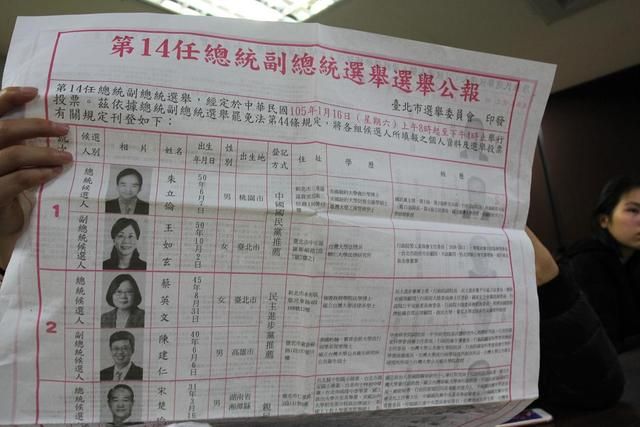
It seems that one person, one vote demonstrates democracy. However, several Taiwanese I met said that they did not vote at all because the candidates were not their own. Some people say that everyone is the same. There are also scholars who lamented that despite democracy, the best people cannot be elected.
In fact, you can see that Taiwan's "presidents" are all elites, and except for Chen Shui-bian, who graduated from the Department of Law of National Taiwan University, the others are returnees: Lee Teng-hui graduated from the Department of Agricultural Economics of National Taiwan University and then obtained a master's degree in agricultural economics from the University of Iowa in the United States. After graduating from the National Taiwan University Law Department, Ma Ying-jeou went to the United States to study in the United States and obtained a Juris Doctor degree from Harvard University, while Tsai Ing-wen received a Bachelor of Laws degree from National Taiwan University.
All four are National Taiwan University alumni. Except for Lee Teng-hui, the other three have legal backgrounds. It's just that the family backgrounds are different. There are farmers' children (Chen), officials' sons (Li, Ma), and businessmen's daughters (Cai).
But the paradox is that the "presidents" since Lee Teng-hui have been professionally nurtured by the spirit of the rule of law, and some of them actually experience corruption (Chen). The biggest problem is that political struggles overwhelm the rule of law.
For example, when Ma Ying-jeou was in power, he brought Chen Shui-bian to justice, which was justified and well-founded, and was considered by the DPP to be partisanship. Therefore, after Tsai Ing-wen came to power, Ma Ying-jeou was accused of abetting and leaking secrets, and the Taipei District Prosecutor's Office prosecuted, and the Taipei District Court acquitted him in the first instance on March 28, 2017. Although the final conclusion will take time, it is a sure thing to make a fuss and waste public resources. "Bento President" Ma Ying-jeou, who has the reputation of "non-stick pan", insisted that this was an act of duty, and asked "where is justice?" It is indeed worth thinking about what constitutional governance is.
This does not count. The DPP government's liquidation of KMT party properties (inappropriate party property regulations) is still a just result, but the draft "Promotion of Transitional Justice Regulations" that began to be reviewed in April 2016 has major problems. In 2017, Tsai Ing-wen announced that she would strengthen the "legislation" of the regulations on the "February 28" anniversary.
According to the previous draft, the Executive Yuan set up a task-oriented independent agency, the “Committee to Promote Transitional Justice,” to promote “opening political archives”, “clearing symbols of authoritarianism, preserving injustice sites”, “pacifying judicial lawlessness, restoring historical truth and promoting Social reconciliation", "improper handling of party property", "other transitional justice matters" and other five major tasks. The transfer agency has the power and responsibility for administrative investigation, data and evidence preservation, the administrative agency has the obligation to assist in the investigation, and the person under investigation has the obligation to cooperate.
The draft stipulates that the period of authoritarian rule refers to the period from August 15, 1945 to April 30, 1991. The person under investigation shall make a true and complete statement to the best of his knowledge, and provide customs repair information, and shall not conceal or require a statement. Whoever destroys, damages or conceals the political files kept by the various government agencies, political parties, affiliated organizations and the 2.28 Incident Memorial Foundation of the Executive Yuan, or renders them unusable, shall be sentenced to fixed-term imprisonment of not more than five years.
In March 2017, Taiwanese media reported that Tsai Ing-wen, after consulting with the "Executive President" Lin Quan, decided to push the DPP version of the "Regulations on Promoting Justice for Transition" to pass through the Legislative Yuan during this session, but because the ordinances for promoting transition are highly political. Sensitive bills, the legislative process will inevitably lead to a high degree of competition between blue and green, which may affect the legislative progress of many priority bills such as pension reform and special regulations on forward-looking infrastructure plans that the Executive Yuan hopes to pass this session. The legislation of the transfer regulations, as well as the offensive and defensive situation of the court and the opposition.
The "Regulations on Promoting Transitional Justice" seem to pursue justice of results, such as "removing symbols of authoritarianism and preserving injustice sites", but in practice it has actually become "de-Jianghua". Chen Shui-bian was actually doing it during his second term. For example, in 2007, the Chiang Kai-shek Memorial Hall was changed to the "Taiwan Democracy Memorial Hall", and the "Dazhongzhizheng" was changed to "Freedom Square". After Tsai Ing-wen came to power, there were many incidents of demolishing and destroying the bronze statue of Chiang Kai-shek. Some members even proposed to move the Chiang Kai-shek bronze statue of Chiang Kai-shek Memorial Hall to Cihu (the place where Chiang's coffin was placed), and the cultural and creative products related to Chiang Kai-shek should also be put off the cabinet.
However, the funny thing is that the cultural and creative products of Jiang and Jiang were actually encouraged by the Cultural Council during Chen Shui-bian's reign, and even Wu Songzhou, the designer of Jiang Gong doll, couldn't stand it anymore, "It's also the DPP government, why do you have to fight it yourself? Your own face?"
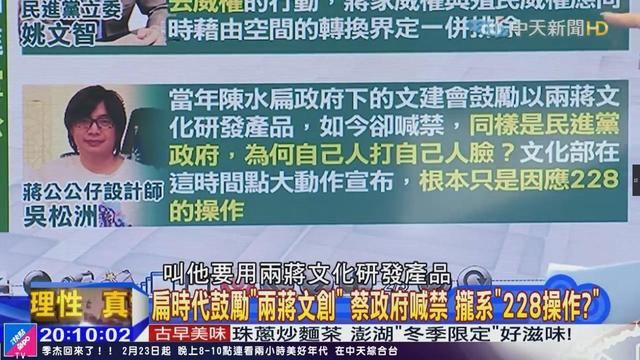
In fact, there are also procedural problems in the review of the "Promotion of Transitional Justice Ordinance", because the DPP holds 60% of the seats in the "Legislative Yuan" and "legislators" (out of the total 113 seats, 68 seats and the Kuomintang 35 seats), so basically You can pass any bill you want to pass. "One party dominance" is indeed a problem in democratic politics.
It seems that the DPP winner takes all, but fortunately times have changed, there is always freedom of speech. For example, some Taiwan media asked why the "Regulations on Promoting Transitional Justice" did not start from the era of Japanese occupation? The "Liberty Times", which is usually considered green by the public, has no shortage of criticism of Tsai Ing-wen's government. On TV, there are also talk shows criticizing his ability to govern.
A driver once said to me: "Although whoever is in power is almost the same, I can scold this and that, and I will never worry about being arrested today or tomorrow."
Indeed, although Taiwan's democracy is constructed and promoted by the elites studying abroad, there will always be a phenomenon of incompatibility. Even the object of its imitation, the United States, has been practiced for hundreds of years, and there are still various problems. Fukuyama, who wrote "The End of History", once took the current capitalist democratic system as the standard, and in April 2017 he went to Taiwan and began to talk about the "collapse of democracy".
Taiwan is of course more complicated. People who have read the Chinese translation of "Imagined Community: The Origin and Spread of Nationalism" are probably like me, because of the book's post-translation, the translator Wu Ruiren is deeply impressed (the interested person can look for Xu Zhiyuan's book "Rebels". , or search the Internet for a section on the book Wu Ruiren). He is now an associate researcher at the Institute of Taiwan History of the Chinese Academy of Sciences, and in July 2016, he published "The Trapped Mind: Taiwan's Return to the World" (Acropolis Publishing).
On the waistband of the book was printed "Where is Taiwan Going? - Defending Taiwan on the World's Intellectual Map". He put forward the following views on the realization of "mutual liberation" of the diverse Taiwanese (local, foreign and aboriginal):
Taiwan is not non-Chinese, non-Japanese, non-Han, or non-Western; Taiwan is Taiwan. We must deconstruct multiple colonial centers and the false opposition they create so that Taiwan can be (naturally) aboriginal, (civilized) China, (peaceful) Japan, (friendly) Han, and (democratic and liberal) at the same time The West - Let Taiwan be the sum of the progressive humanitarian values of all these universal values. (P22-23)
Indeed, Taiwan still has a long way to go to achieve these goals. Issues such as partisan labelling battles, black money politics, ethnic divisions, the suspension of the "separation of powers" (legislative, executive, judicial, supervisory, and examination) and media chaos all need to be addressed.
But think about it, a small island has achieved a peaceful transformation in less than 30 years since the lifting of the law, trying to find a way that suits the local conditions in the mixed culture of various cultures is indeed not a simple matter.
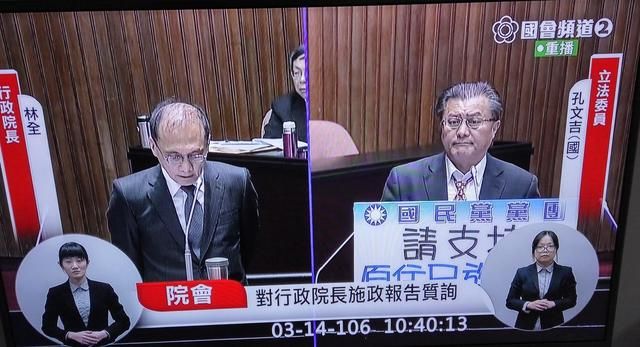
Caption: On March 14, 2017, the Taiwan Congress Channel questioned the Executive Yuan's policy address.
I will always remember that there is an amber shop at Kaohsiung Banana Pier. The manager is a young woman in her thirties, and there is a photo album on the table. The people who have taken pictures with her in the store include: Ma Ying-jeou, Wu Dunyi, Lv Xiulian, Xie Changting, Chen Ju...
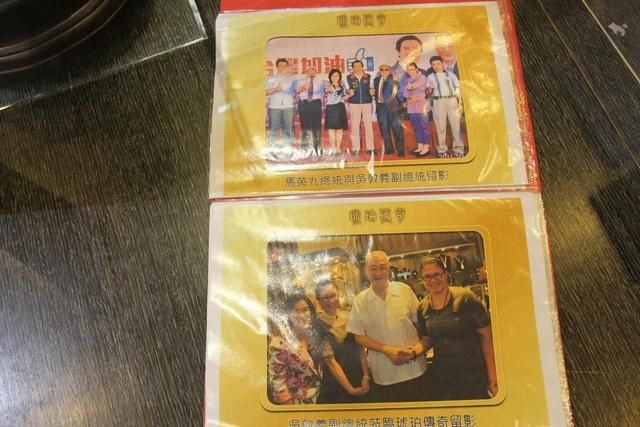
When she heard that I was from mainland China, the woman was surprised that I was traveling alone. Most importantly, she praised the mainland: "I like your leader very much, Xi Jinping, I think he is very courageous and vigorously fights corruption. You are developing very fast..."
20170410-17 Written in Beijing
Special thanks to the Foreign Affairs Office of my school, the National Relations Center of Chengchi University, Prof. Chen Desheng and Mr. Chen Lixing, and Prof. Feng Jiansan and Prof. Zhu Li.
Like my work?
Don't forget to support or like, so I know you are with me..
Comment…